Discussion: Adult Learning Principles and Facilitation Strategies
VerifiedAdded on 2021/05/31
|5
|798
|62
Discussion Board Post
AI Summary
This discussion post delves into the principles of adult learning, commonly referred to as andragogy, highlighting its contrast with traditional didactic teaching methods. It emphasizes the learner-centered approach, where educators act as facilitators, fostering a collaborative and problem-based learning environment. The post outlines six key principles of adult learning: goal orientation, practicality, self-direction, integration of life experiences, relevance, and respect. It then discusses the facilitation approach to teaching, which prioritizes the learner's needs and uses strategies like K-W-L charts to understand and address them. The effectiveness of a direct learning process, similar to the K-W-L chart, is also emphasized, which involves identifying learning gaps, creating action plans, and maintaining collaboration between educators and learners. The goal is to inspire active engagement in education programs, enhancing academic achievement and promoting a strong sense of community in the classroom.
1 out of 5
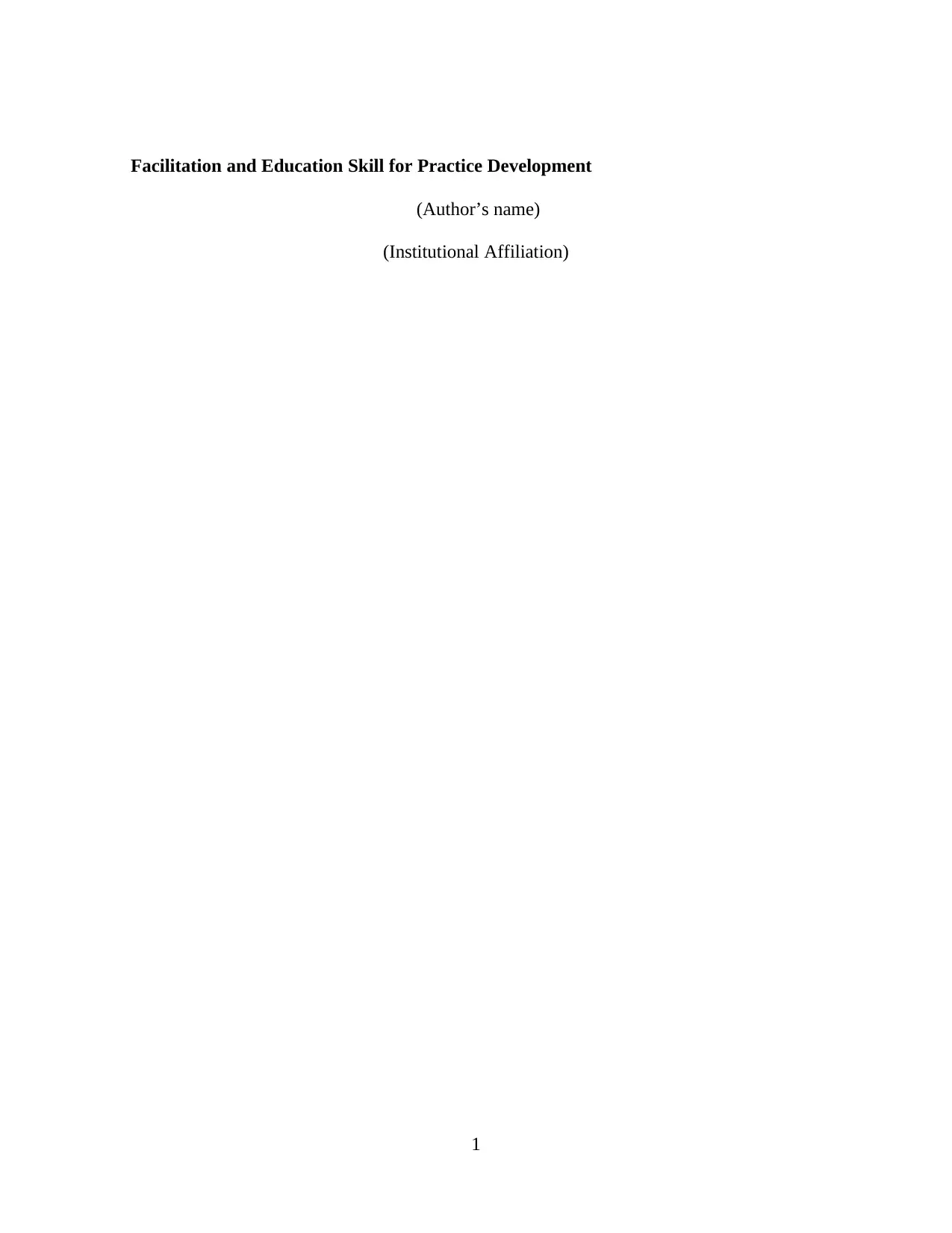
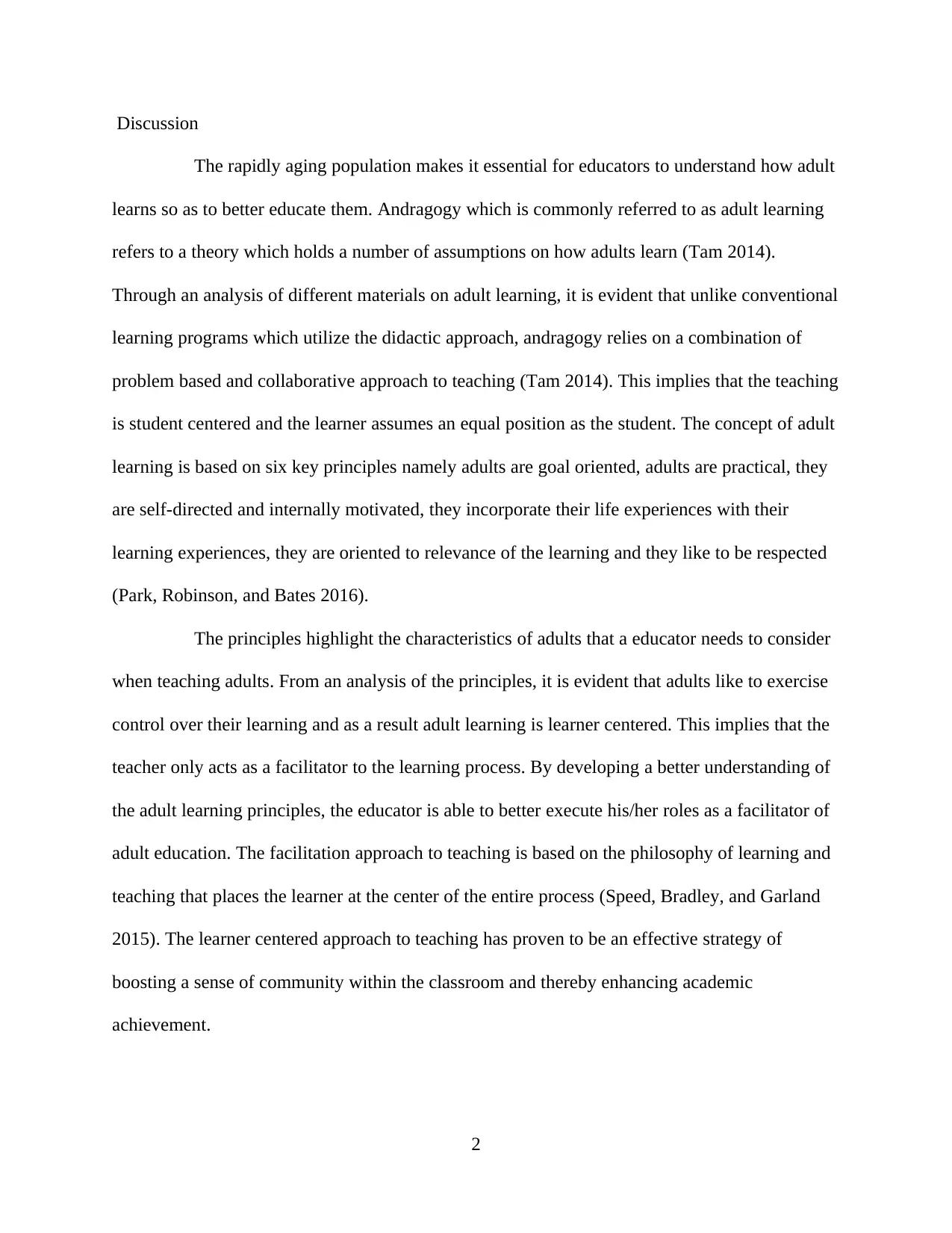
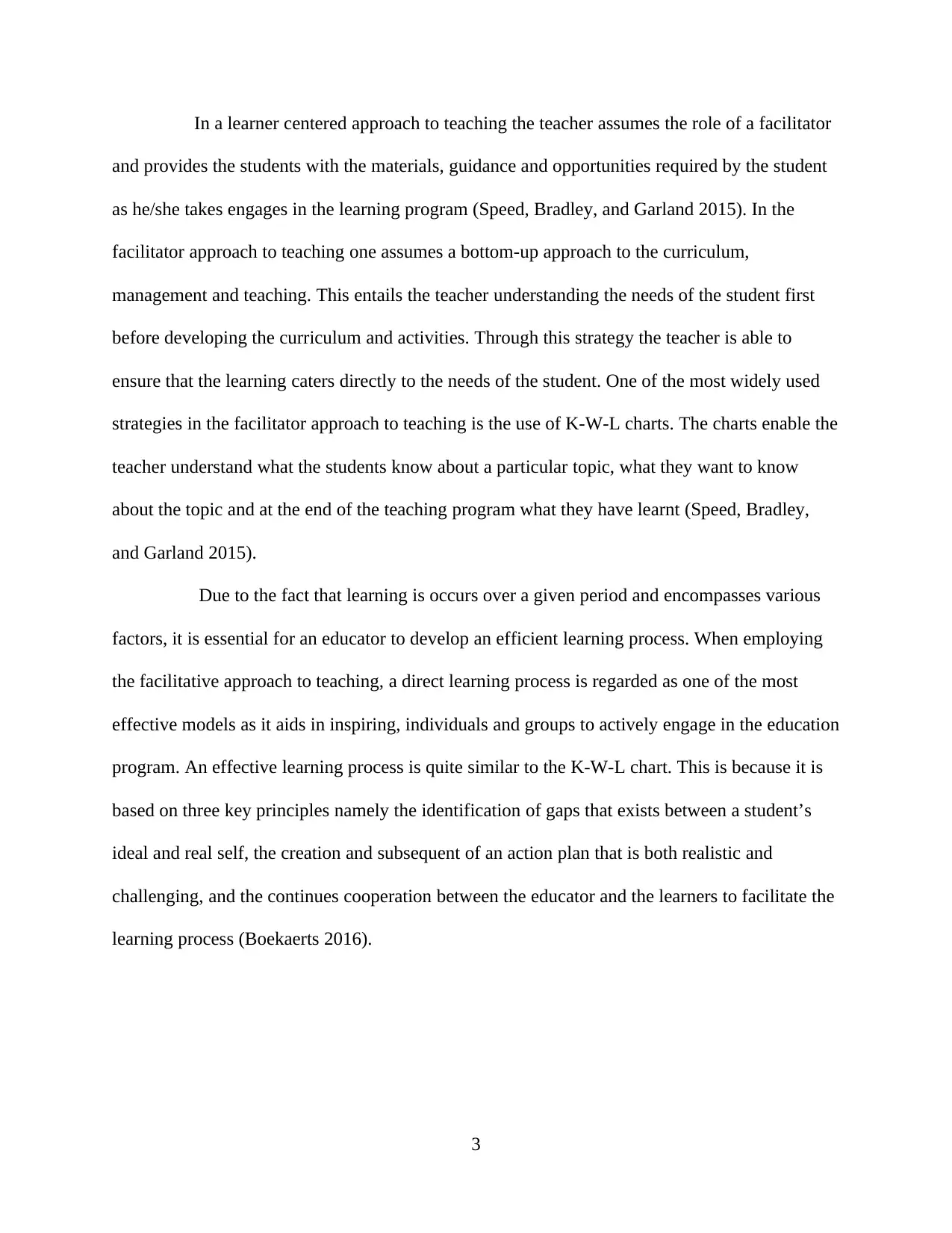

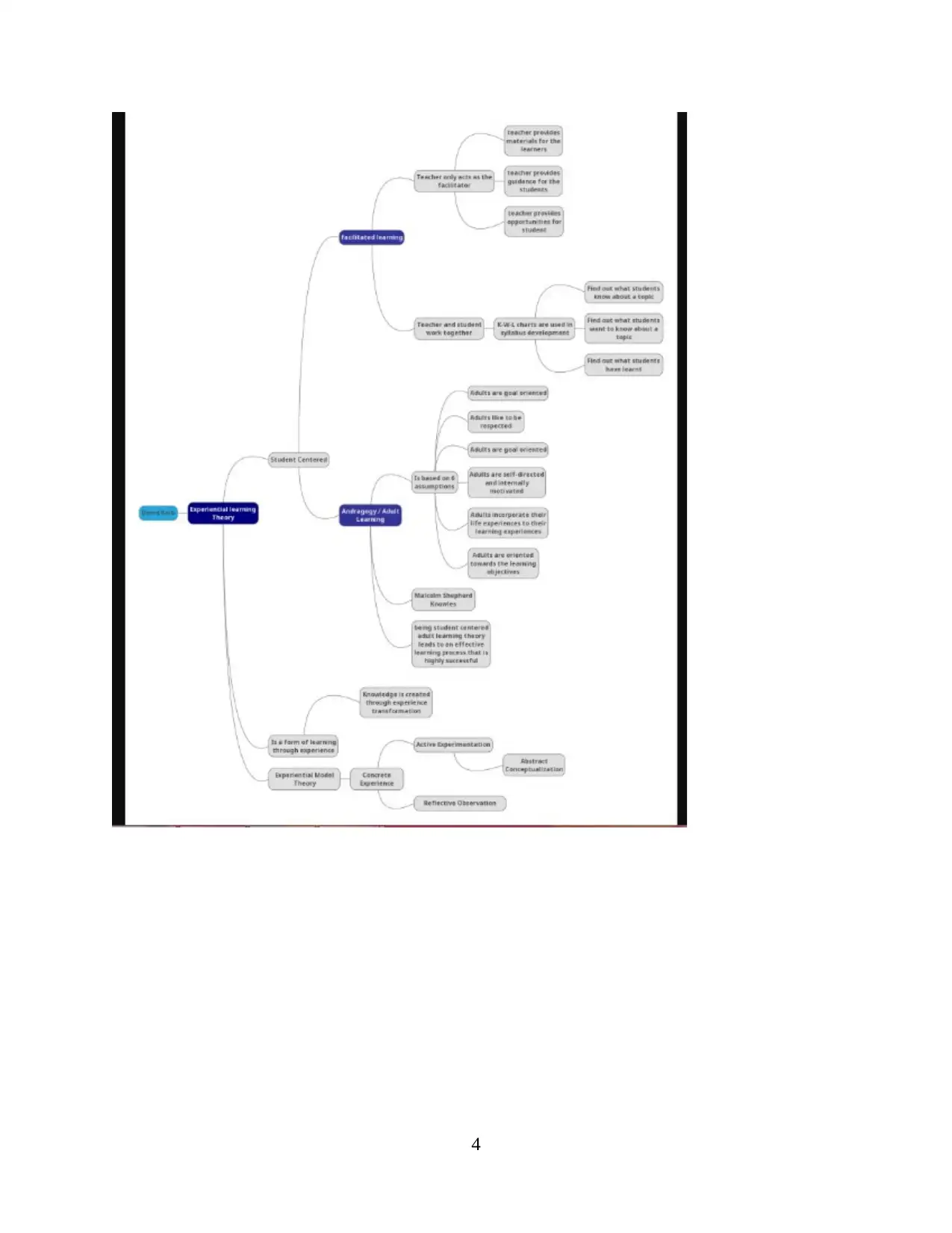
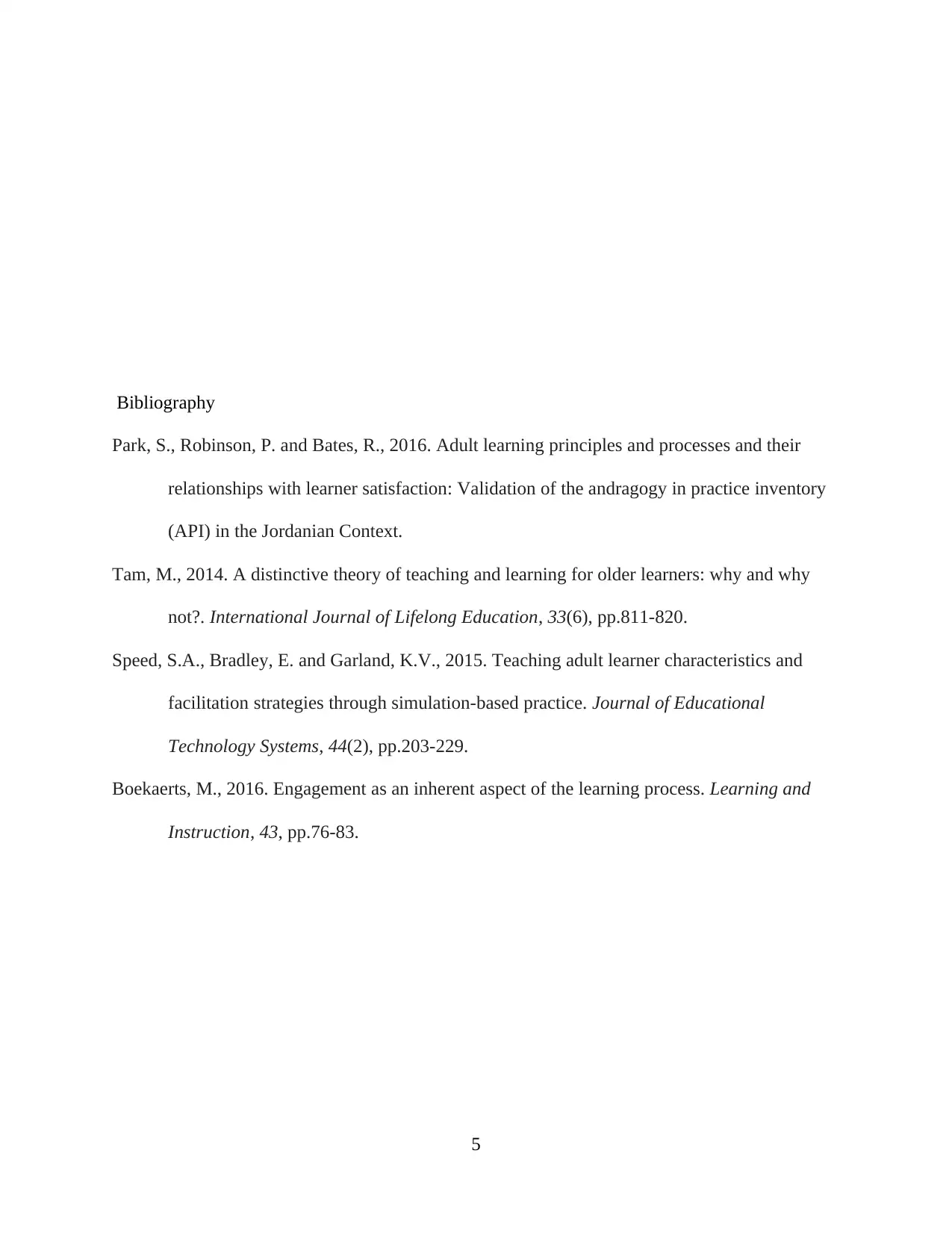




![[object Object]](/_next/static/media/star-bottom.7253800d.svg)